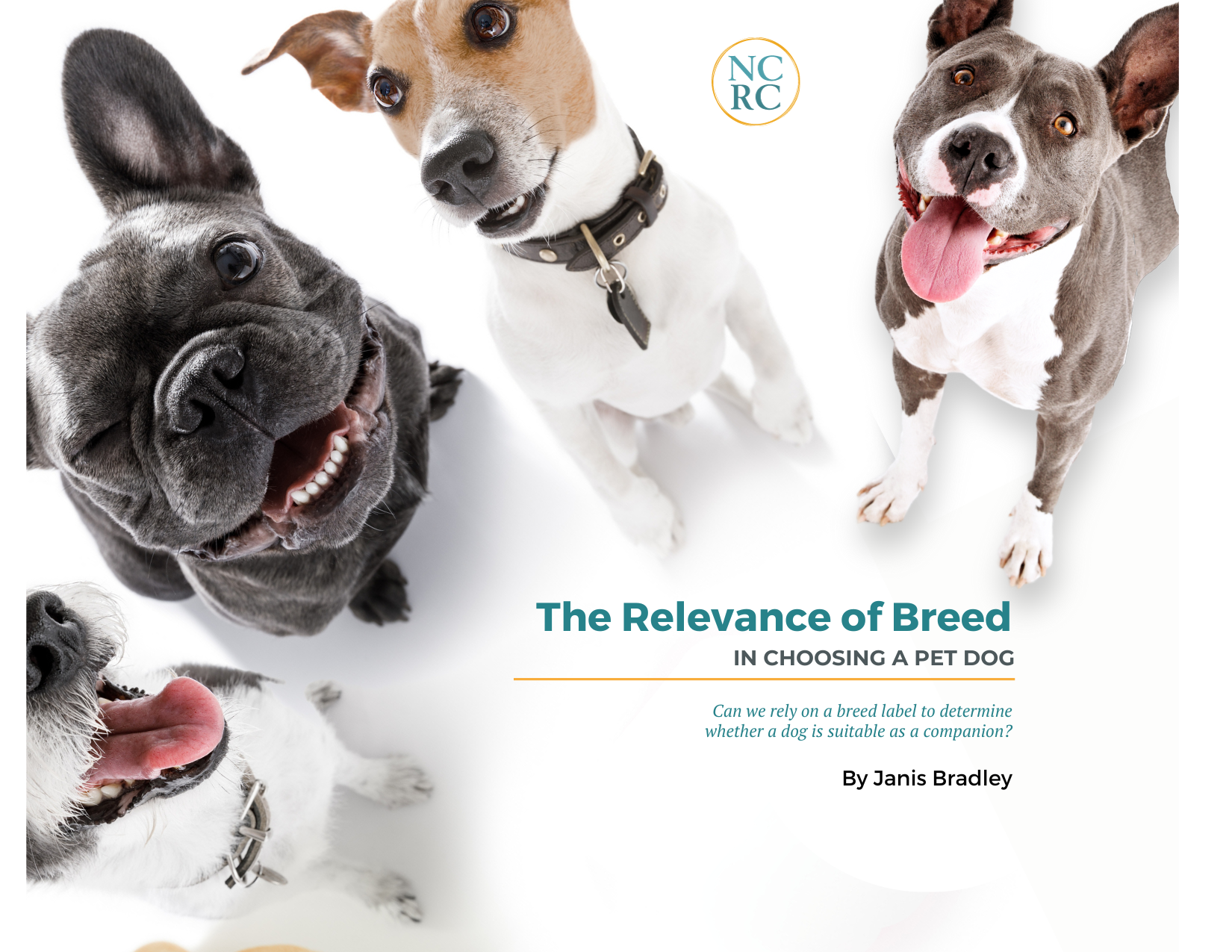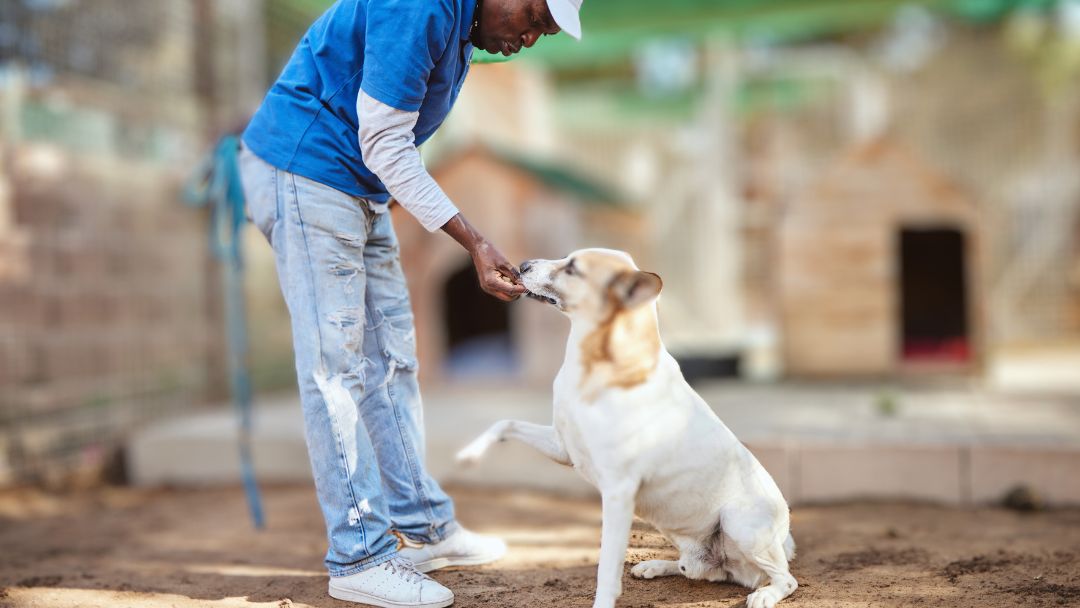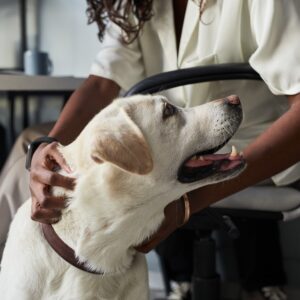On August 14, 2012, 248,496 of Miami-Dade County’s 1.2 million registered voters (20%, or 202,637 people) went to the polls to decide if a 23-year-old ban on “pit bull” dogs would be repealed through a voter referendum. The outcome showed that 140,879 (63.2%) of participating voters opted to keep the ban in place, compared with 81,758 (36.8%) participating voters who wanted it repealed. [1]
Although the result was a disappointment for community safety advocates and dog-owners in South Florida, it underscores the need for fact-based, peer-reviewed information concerning animal behavior, the human-canine bond, and the kinds of ordinances proven to enhance public safety. Tragically for companion dogs and the people who love them, the outcome of the August 14 primary shows the extent to which taxpayers of Miami-Dade County continue to be misled by fear-based, outdated reports resulting in the continuance of costly regulations that do not produce safe, humane communities.
An American Veterinary Medical Association (AVMA) analysis of 40 years of the controlled study of dog bites does not identify “pit bull” dogs as disproportionately dangerous. [2] Animal experts agree that it is human beings (i.e., the owners) who are responsible for the humane care, custody, and control of their dogs, and who have an obligation to their pets and to their fellow community members. Yet, because of the ban on “pit bull” dogs, the taxpayers of Miami-Dade County have spent the past 23 years living in fear of any dog they believed was a “pit bull.” It is no surprise – nor fault – that their voting reflects this confusion. Unlike the rest of the State of Florida, which enacted a law in 1989 prohibiting regulation of dogs based on breed, presumed breed, or appearance, the taxpayers in Miami-Dade were grandfathered into an antiquated system where a dog’s appearance was falsely assumed to predict behavior, despite ample scientific evidence to the contrary.
The knowledgeable official charged with enforcing the animal ordinances and protecting the public. Director of Miami-Dade Animal Services Alex Munoz, told the Miami Herald on August 15, 2012: “If you asked me if there was a predominance of pit bull bites versus other dogs, we don’t see a predominance of pit bull bites…because they’re no different from any other dog”. [3] Miami-Dade’s Operations and Enforcement Chief, Kathleen Labrada, also told the Miami Herald on August 4, 2012: “Even the pits that Animal Services picks up as strays are “sociable’.” [4]
In perhaps the most revealing indication of the official view of these “outlawed” dogs, Director Munoz issued a press release after the election stating that while the “Miami-Dade County Animal Services Department respects the will of the electorate and its decision … the department will continue to work with rescue organizations and adopters to find new life-long homes for ‘Pit Bulls’ outside of Miami-Dade County.” [5]
Breed specific regulation has never enhanced community safety wherever it has been implemented in North America or Europe, including Miami-Dade County. In an era of national economic turmoil, particularly in devastated regions of the southern United States, taxpayers deserve to know that their hard-earned dollars have been directed towards costly measures that have failed to enhance public safety while devastating responsible, law-abiding citizens.
As of 2012, the overwhelming trend has been to repeal or reject laws that target dog owners and their pets based on breed, presumed breed, or appearance. At the same time that Miami-Dade voters went to the polls, the American Bar Association (ABA) House of Delegates passed a resolution urging jurisdictions in the United States to repeal any and all breed specific regulations. An increasing number of political leaders – from both political parties, conservatives and liberals alike – have recognized the successful track-record of breed-neutral responsible dog ownership laws. The Miami-Dade community deserves to benefit from the experiences of responsible dog ownership communities around the country. It will take time to undo the disservice decades of hysteria and misinformation surrounding “pit bull” dogs have done to the dogs themselves. Animal professionals, animal welfare organizations, safety officials, dog owners, and the media have a responsibility to seek out and alert citizens to the most up-to-date, reliable research on dogs and to recognize the human responsibility for the human-canine bond, so that fewer communities suffer the consequences of ineffective laws that penalize taxpayers, dog owners, and government agencies.
[1] Miami-Dade County Primary Election Results. (14 August 2012). Retrieved from: http://results.enr.clarityelections.com/FL/Dade/40545/96726/en/summary.html
[2] AVMA Animal Welfare Division. (17 April 2012). The Welfare Implications of the Role of Breed in Dog Bite Risk and Prevention. Retrieved from: https://www.avma.org/KB/Resources/Backgrounders/Pages/The-Role-of-Breed-in-Dog-Bite-Risk-and-Prevention.aspx
[3] Associated Press. (15 August 2012). Vote keeps Miami-Dade pit bull ban in place. Retrieved from: http://www2.tbo.com/news/breaking-news/2012/aug/15/vote-keeps-miami-dade-pit-bull-ban-in-place-ar-465139/
[4] Brecher, Eleanor. (4 August 2012). “Miami-Dade set to vote on repeal of pit bul ban.” The Miami Herald. Retrieved from: http://www.miamiherald.com/2012/08/04/2932192/miami-dade-set-to-vote-on-repeal.html
[5] Miami-Dade County. (15 August 2012). Miami-Dade Animal Services Department Director Alex Munoz’ Statement on Repeal of County’s Pit Bull Dog Ban. [Press Release]. Retrieved from: http://www.miamidade.gov/animals/releases/2012-08-15-put-bull-ban.asp







